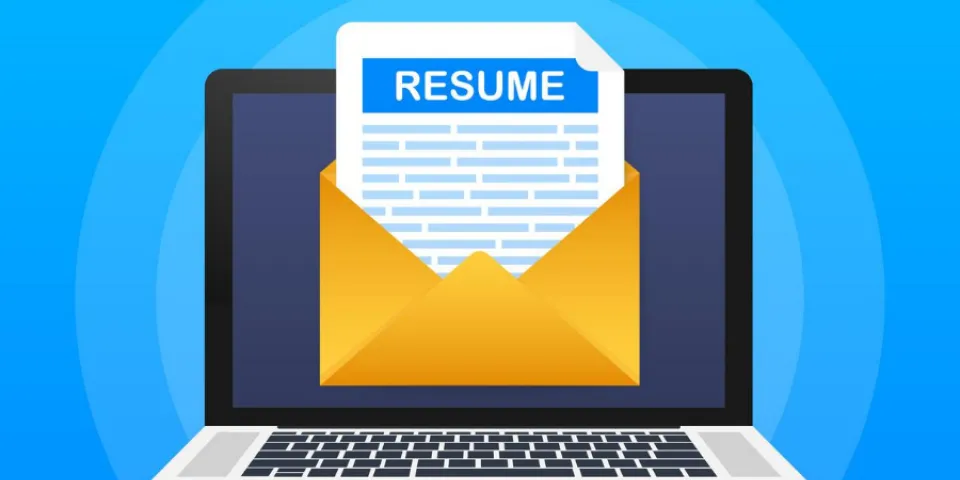Latest
5 Tips for Emailing your Resume and Cover Letter
Aug 24, 2020

Determining what to write when emailing a resume and cover letter can be a daunting task. Unlike submitting a resume and cover letter within an applicant tracking system (ATS), writing an email and including your resume and cover letter provides you an opportunity to personalize your communication in a manner that separates you from the pack of candidates.
As a career coach, I have years of experience perfecting strategies and techniques that help individuals find, apply for and secure jobs. Below are a few of the most important factors to consider when emailing your resume and cover letter that can help put you in the best position to find meaningful employment:
1. Follow job posting instructions
This may sound like common sense, but when applying for positions that have no ATS or designated submission forms, but instead have directions that call for candidates to email application materials, it cannot be underestimated how crucial it is to follow the job posting directions exactly as they appear. For example, some postings may request specified email subject lines, preferred formats for professional job search documents and many other specialized requests. These professional documents might include items such as your resume and cover letter. Following the exact email submission instructions will reflect your ability to follow directions, a commonly desired skill by employers.
2. Use a strategic email subject line
Hiring managers typically receive dozens of email inquiries when job opportunities are posted. As their time is greatly limited, it’s important to demonstrate your professional communication skills with an email subject line that is succinct and to the point. An example may be as follows: “Your Name – Job Title.” This will increase the likelihood that your email inquiry will be opened and reviewed, rather than screened and disregarded right from the start due to an email subject line that is poorly named or unclear.
3. Be formal
Ensuring that you are following the job posting submission directions exactly might influence the text you include in the body of the email. If the posting calls for you to attach your cover letter in addition to the resume, you may choose to keep the body of the email brief. For example, using business formal language and stating that your resume and cover letter are attached can be adequate. However, it is also acceptable to incorporate language used in your customized cover letter in the body of the email as well. This could include introducing yourself and your interest in the position, briefly highlighting how your skills and experience match those needed for the job and finishing with a call to action such as asking for an interview to further express your interest. You could also ask for the opportunity to answer any questions. Do not include casual language in any of your written communication! Applying for any position should remain formal.
4. Follow a file naming convention for attachments
Hiring managers are used to seeing a wide spectrum of how candidates name their resumes and cover letters. As it’s important to take every advantage to separate yourself from the pack, it is suggested to name your files in a convention similar to this: “FirstName LastName – Resume – Job Title.” This approach can indicate that you’re detail-oriented, yet another skill commonly desired by employers.
5. Proofread, and proofread again
Hiring managers have their own personal methods of screening email applicants to move on to the interview stage. Grammar and spelling errors are an easy first step to screen out applicants, as these issues can be perceived as a lack of attention to detail or poor communication skills. That considered, it’s important to use tools such as spellcheck and Grammarly to identify grammar issues. Most importantly, reread your email multiple times to ensure any issues, no matter how small, are corrected. You could also have a friend or mentor give your materials a final review before sending it.
Following the above tips may seem insignificant and overkill when applying for positions via email, but that could not be further from the truth. Savvy job seekers who understand the importance of following instructions, communicating strategically and paying attention to detail are ones who will put themselves in the best position possible to move on to the interview stage!
Herzing’s Career Development team is happy to connect with you individually should you be interested in strategizing how to incorporate these techniques into your next application.
Learn More About Our Programs
BLS pay estimates calculate the median annual wage for various occupations. Per the BLS the median wage for an occupation is: "The wage at which half of the workers in the occupation earned more than that amount, and half earned less. Median wage data are from the BLS Occupational Employment and Wage Statistics survey." Bureau of Labor Statistics (BLS), U.S. Department of Labor, Occupational Outlook Handbook 2024. BLS median wage estimates do not represent entry-level wages and/or salaries. Multiple factors, including prior experience, age, geographic market in which you want to work, and degree level and field, will affect career outcomes, including starting salary and earnings as an experienced employee. Herzing neither represents that its graduates will earn the median salaries calculated by BLS for a particular job nor guarantees that graduation from its program will result in a job, promotion, particular wage or salary, or other career growth.
Latest
Recent Blog Posts
Subscribe to our Newsletter
Get the latest news you need to know, from study hacks to interview tips to career advancement. Have it delivered right to your inbox biweekly.








